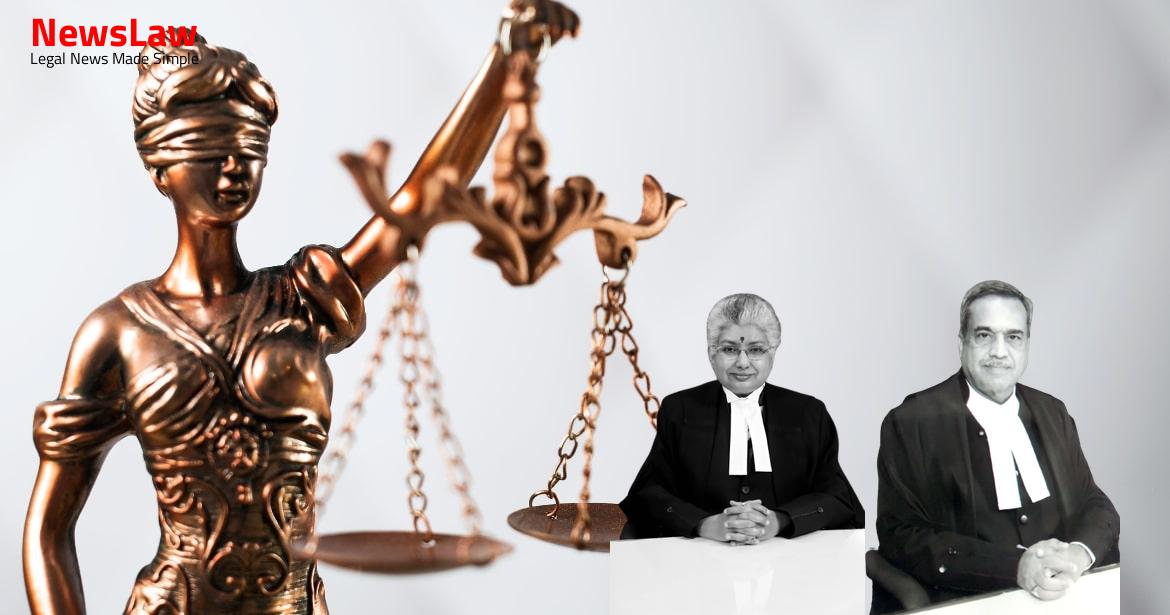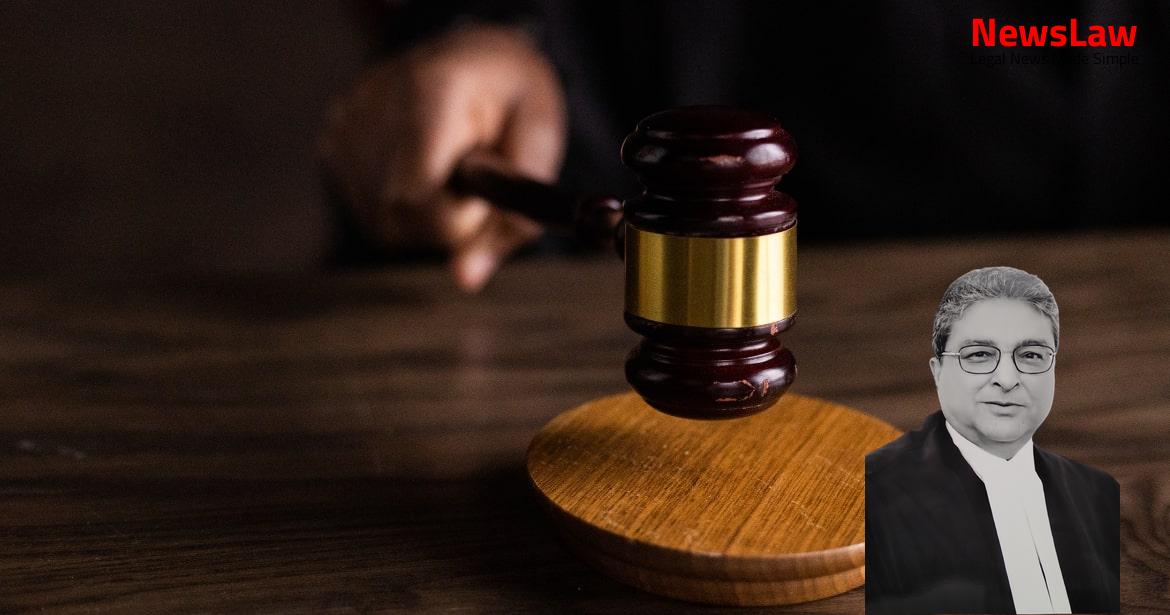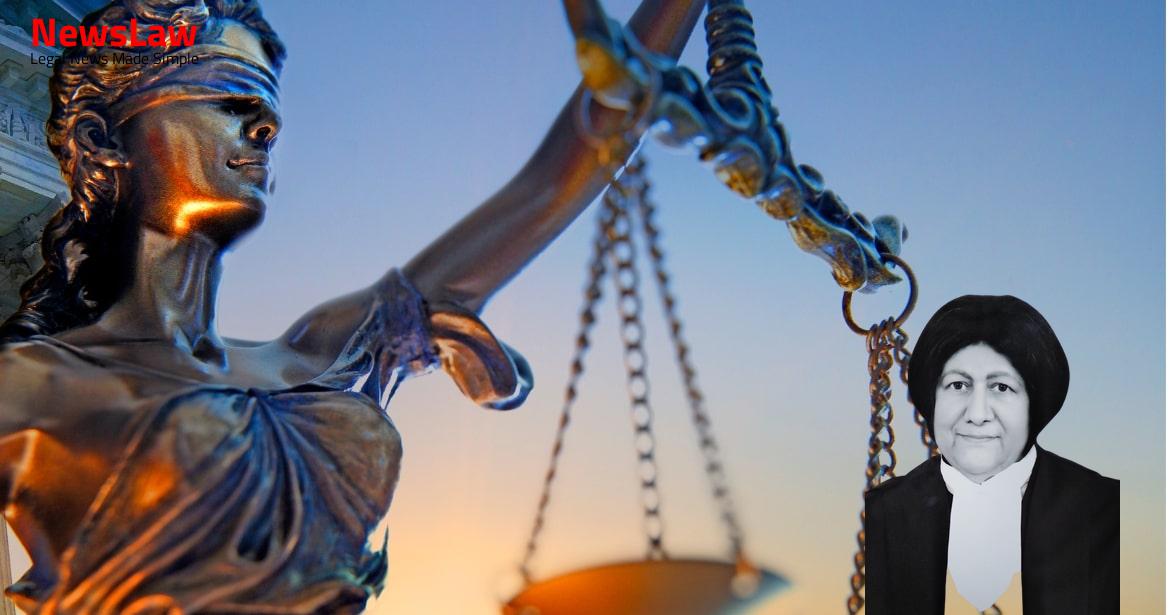The legal case involves the transfer of a criminal case to the District Council Court, with the respondent seeking exclusive trial by the court due to the parties belonging to Scheduled Tribes. The State is prosecuting the case, indicating it is not a dispute between two tribals. The case showcases the application of specific constitutional provisions for tribal areas, as emphasized by the learned counsel for the respondent.
Facts
- The Respondent, who is a member of the Khasi Scheduled Tribe, was being tried for offences under Sections 302 and 201 of the IPC before the Sessions Judge, Nongstoin, West Khasi Hills District.
- The accused filed a petition for transfer of the case to the Court of Judge, Khasi Hills Autonomous District Council, Shillong, stating the case involves both tribals and thus should be exclusively triable by the District Council Court.
- The High Court of Meghalaya allowed the transfer petition in its judgment dated 05.12.2017, which is being challenged in this instant SLP.
- The deceased was identified as a member of the Khasi Scheduled Tribe, and the last calls made using her phone were traced to the accused, who led the police to the spot where he had buried the body.
- The case set up by the prosecution is that a dead body was found on the Nondein river bank, leading to the filing of an FIR and a chargesheet against the accused under Sections 302 and 201, IPC.
Also Read: Interpretation of Will Clauses in Property Dispute
Arguments
- The Complainant, the Officer in Charge at the Police Station, cannot be considered a party to the case as he was acting in his official capacity and forms part of the State machinery.
- Under paragraph 4 of the 6th Schedule to the Constitution, all parties to a suit or case must belong to Scheduled Tribes within the specified areas for the District Council Court to have exclusive jurisdiction over such suits or cases.
- The criminal case against the Respondent is prosecuted by the State, indicating that it is not a dispute between two tribals as the deceased cannot be a party to such a case.
- Learned Counsel for the Respondent argued that paragraphs 4 and 5 of the Schedule to the Constitution provide a special dispensation for adjudicating disputes in tribal areas.
- It was emphasized that the special provision in paragraph 5 should be given effect when interpreting the Constitution.
- The focus was on the need to consider the specific provisions for tribal areas when analyzing the legal framework.
Also Read: Preservation of Open Spaces in Development Plans
Analysis
- Under the 6 Schedule to the Constitution, Paragraphs 4 and 5 outline the administration of justice in Autonomous Districts and Regions.
- The reference to ‘suits and cases between parties belonging to Scheduled Tribes’ pertains to the victim (Complainant) and the accused party.
- The United Khasi-Jaintia Hills Autonomous District (Administration of Justice) Rules, 1953 were adopted under paragraph 4(4) of the 6 Schedule.
- One District Council Court for the Khasi Hills Autonomous District was constituted under Rule 9.
- Governor may entrust Courts set up by a District Council with trial of specific offenses giving them exclusive jurisdiction.
- Chapter XVIII of Cr.P.C. does not apply to tribal areas, and certain provisions under Chapter VIII, X, XI are irrelevant.
- Governor can make Cr.P.C. applicable for offenses with punishment not less than five years under IPC.
- Notification dated 07.02.2017 conferred powers on the District Council Court, Shillong for certain offenses.
- Paragraph 4 of the 6 Schedule indicates trial of suits and cases between parties all belonging to Scheduled Tribes exclusively by specific courts.
- Detailed jurisdictional powers and procedures are outlined under Rule 9 and paragraph 5(1) of the 6 Schedule.
- The current case involves trial by District Council Court due to parties belonging to Scheduled Tribes.
- The State Government has the power to extend the operation of the Code of Criminal Procedure, 1973 to tribal areas.
- The State Government may apply the provisions of the Cr.P.C to the whole or part of the State of Nagaland or tribal areas with necessary modifications.
- The Regional Council for an autonomous region and the District Council for an autonomous district have the authority to constitute village councils or courts for the trial of suits and cases involving parties from Scheduled Tribes within those areas.
- These village councils or courts have jurisdiction over suits and cases exclusively involving Scheduled Tribes, to the exclusion of any other court in the State.
- The Regional and District Councils may appoint members to such village councils, presiding officers to such courts, and necessary officers for the administration of laws within these areas.
- Reliance was placed on a Full Bench decision of the Meghalaya High Court in Longsan Khongngain v. State of Meghalaya, (2012) 1 Gauhati Law Reports 812.
- The Full Bench decision was considered along with the material on record and arguments advanced by the parties.
- High Court of Meghalaya justified in transferring the criminal case to the Court of Judge, Khasi Hills Autonomous District Council, Shillong.
- Specific notification dated 07.02.2017 confers the District Council Court with powers under Cr.P.C. to try certain criminal offences.
- District Council Court has exclusive jurisdiction to entertain the case as per paragraphs 4 and 5 of the 6 Schedule.
Also Read: Jurisdictional Limits and Statutory Compliance in Development Planning
Decision
- Case against the accused committed for trial to the Court of the Sessions Judge, Nongstoin, West Khasi Hills District.
- Accused summoned to appear before the Sessions Judge.
- District Council Court directed to issue fresh summons to the accused if not already entered appearance.
- District Council Court to proceed with the trial after framing charges in accordance with the law.
- Incident occurred in March 2017.
- District Council Court directed to complete the trial and decide the matter within one year from the date of this order.
Case Title: THE STATE OF MEGHALAYA Vs. MELVIN SOHLANGPIAW (2020 INSC 171)
Case Number: SLP(Crl) No.-001218 / 2018



